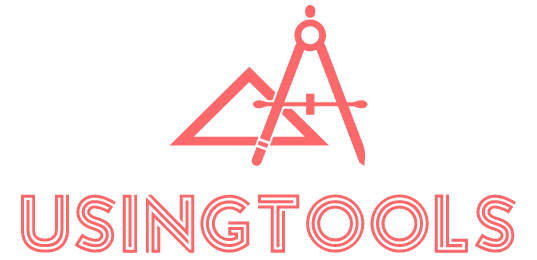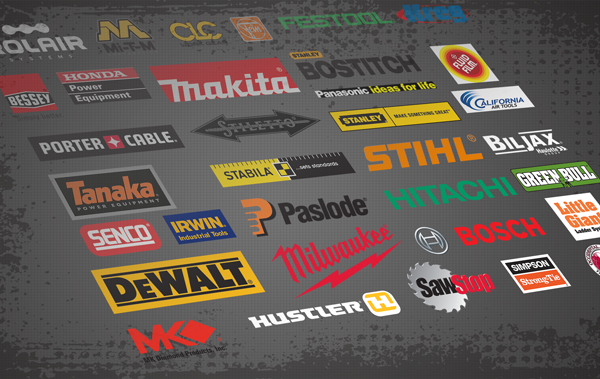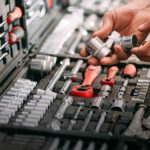Quality tools are essential for any project, whether you’re a professional contractor or a DIY enthusiast. They not only make tasks easier and more efficient but also ensure precision and longevity of your work. With countless tool brands available in the market, it can be overwhelming to choose the right ones. This review aims to provide an overview of the leading tool brands, their strengths, and what sets them apart.
The tool industry is dominated by a few major players, each with its own specialties and target audiences. Brands like DeWalt, Milwaukee, and Makita are renowned for their professional-grade power tools, catering to contractors, carpenters, and tradespeople. Craftsman, Stanley, and Husky, on the other hand, offer a wide range of affordable yet reliable tools for homeowners and DIYers.
Beyond the well-known names, there are also niche brands that excel in specific areas. Brands like Festool and Fein are favored by woodworkers for their precision and innovative designs, while Snap-on and Mac Tools are go-to choices for automotive technicians and mechanics.
When selecting a tool brand, it’s crucial to consider factors such as durability, ergonomics, and ease of use. Top-tier brands often invest heavily in research and development, ensuring their tools are designed with the latest technologies and user-friendly features. Additionally, reputable brands typically offer comprehensive warranties and excellent customer support, giving buyers peace of mind and long-term value.
Table of Contents
Hand Tools
Hand tools are essential for any toolbox, whether you’re a professional tradesperson or a DIY enthusiast. These simple yet indispensable tools have been around for centuries, and top brands continue to innovate and improve upon their designs. Among the most common hand tools are pliers, wrenches, hammers, and screwdrivers.
Pliers are versatile tools used for gripping, bending, and cutting various materials. Top brands like Channellock, Knipex, and Craftsman offer a wide range of pliers, from standard slip-joint pliers to specialized options like lineman’s pliers, needle-nose pliers, and locking pliers. These tools are built to withstand heavy use and provide a secure grip, making them invaluable for tasks like tightening nuts, bending wires, or removing nails.
Wrenches are another essential hand tool, used for tightening or loosening nuts and bolts. Brands like Snap-on, Tekton, and Gearwrench offer a variety of wrench types, including open-end wrenches, box-end wrenches, combination wrenches, and adjustable wrenches (popularly known as Crescent wrenches). These tools are crafted from high-quality materials like chrome vanadium steel or alloy steel, ensuring durability and strength for even the toughest jobs.
Hammers are simple yet powerful tools used for driving nails, shaping materials, or demolition work. Top hammer brands like Estwing, Vaughan, and Stanley offer a range of hammer styles, from the classic claw hammer to specialized options like framing hammers, ball-peen hammers, and sledgehammers. These tools feature sturdy wooden or fiberglass handles and tempered or forged steel heads, designed to withstand heavy impacts and provide years of reliable service.
Screwdrivers are essential for driving or removing screws, as well as other tasks like prying or chiseling. Brands like Wera, Klein Tools, and Wiha offer a wide selection of screwdrivers, from standard flat-head and Phillips-head options to specialized designs like Torx, Robertson, and hex drivers. These tools often feature ergonomic handles, precision-machined tips, and durable construction, ensuring a secure grip and precise fit for every job.
Power Tools
Power tools are essential for tackling a wide range of projects, from home renovations to professional construction work. Among the most popular and versatile power tools are drills, saws, and sanders, offered by major brands such as DeWalt, Makita, Milwaukee, Bosch, and Ryobi.
Drills
Drills are indispensable tools for drilling holes, driving screws, and various other tasks. Cordless drills have become increasingly popular due to their convenience and portability. DeWalt and Milwaukee are renowned for their high-performance cordless drills, offering powerful brushless motors, long-lasting batteries, and durable construction. Makita‘s line of drills is also highly regarded for their ergonomic design and efficient energy management.
Saws
Saws are essential for cutting through various materials, including wood, metal, and masonry. Circular saws and reciprocating saws are popular choices for construction and demolition work, while miter saws are ideal for precision woodworking projects. Bosch and DeWalt offer a wide range of saws known for their accuracy, power, and durability. Milwaukee‘s FUEL line of saws features advanced brushless motors and battery technology for extended runtime and performance.
Sanders
Sanders are crucial tools for smoothing and finishing surfaces, preparing them for painting or staining. Orbital sanders and belt sanders are commonly used for woodworking projects, while random orbit sanders are versatile for various materials. Makita and DeWalt offer high-quality sanders with efficient dust collection systems and variable speed controls. Ryobi‘s line of sanders is a popular choice for DIYers and homeowners, providing good value and performance.
These major tool brands continuously innovate and improve their power tool offerings, incorporating advanced technologies such as brushless motors, lithium-ion batteries, and intelligent electronics. With a focus on ergonomics, durability, and performance, these brands cater to the diverse needs of professionals and DIY enthusiasts alike.
Woodworking Tools
Woodworking is a craft that requires precision, skill, and the right tools. Among the essential tools for any woodworker are table saws, routers, and chisels. These tools are available from various reputable brands, each with its own unique features and strengths.
Table saws are a staple in any woodworking shop, and brands like SawStop, Powermatic, and Delta offer top-of-the-line models. SawStop is renowned for its innovative safety technology, which can detect skin contact and instantly stop the blade, preventing serious injuries. Powermatic and Delta, on the other hand, are known for their robust construction, precision engineering, and durability.
Routers are versatile tools used for creating intricate designs, cutting grooves, and shaping edges. Brands like Porter-Cable, Bosch, and Triton offer a wide range of routers suitable for both professional and hobbyist woodworkers. Porter-Cable routers are known for their power and reliability, while Bosch routers are praised for their precision and ease of use. Triton, a lesser-known brand, has gained a reputation for innovative designs and features, such as their unique router lift systems.
Chisels are essential for fine woodworking tasks, such as trimming, paring, and cleaning up joints. Brands like Lie-Nielsen, Veritas, and Pfeil are highly regarded for their quality and craftsmanship. Lie-Nielsen chisels are made using traditional methods and are renowned for their exceptional edge retention and durability. Veritas chisels are designed with ergonomics in mind, featuring comfortable handles and well-balanced blades. Pfeil chisels, originating from Germany, are known for their precision grinding and exceptional sharpness.
When it comes to woodworking tools, quality and precision are paramount. Reputable brands like those mentioned above have built their reputations on delivering reliable, high-performance tools that can withstand the rigors of woodworking projects. Whether you’re a professional or a hobbyist, investing in quality tools from these brands can make a significant difference in the outcome of your woodworking endeavors.
Automotive Tools
When it comes to automotive tools, having the right equipment can make all the difference in tackling repairs and maintenance tasks efficiently. Ratchet sets, torque wrenches, and diagnostic tools are essential components of any mechanic’s toolkit, and various brands have established themselves as leaders in this domain.
Ratchet Sets
Ratchet sets are indispensable for loosening and tightening bolts and nuts in tight spaces. Leading brands like Snap-on, Craftsman, and Gearwrench have earned a reputation for producing high-quality ratchet sets that offer superior durability and smooth operation. These sets typically feature a range of socket sizes, extensions, and accessories to accommodate various automotive applications.
Torque Wrenches
Proper torque application is crucial for ensuring the secure and safe installation of critical components, such as lug nuts and engine parts. Brands like Precision Instruments, CDI, and Tekton have gained recognition for their accurate and reliable torque wrenches. These tools often come with features like audible and tactile feedback, ensuring precise torque application every time.
Diagnostic Tools
With the increasing complexity of modern vehicles, diagnostic tools have become essential for identifying and troubleshooting issues. Brands like OTC, Autel, and Launch have pioneered advanced diagnostic scanners and code readers that can communicate with a vehicle’s onboard computer systems. These tools provide mechanics with valuable insights into error codes, sensor data, and other vital information, streamlining the repair process.
Regardless of the brand, it’s essential to consider factors such as durability, accuracy, and compatibility with various vehicle makes and models when selecting automotive tools. Reputable brands often offer comprehensive warranties and excellent customer support, ensuring that mechanics have the necessary resources to tackle even the most challenging automotive repairs.
Lawn and Garden Tools
When it comes to lawn and garden tools, trusted brands like Husqvarna, Honda, Stihl, Echo, and Ego offer a wide range of high-quality products designed to make outdoor maintenance tasks easier and more efficient. Lawnmowers, trimmers, and pruners from these reputable manufacturers are known for their durability, performance, and innovative features.
Lawnmowers from brands like Honda, Husqvarna, and Ego are available in various types, including walk-behind, riding, and robotic models. These mowers are engineered to deliver a clean, even cut while being fuel-efficient and environmentally friendly. Many feature advanced technologies like mulching capabilities, electric start systems, and self-propelled mechanisms for effortless operation.
Trimmers and brushcutters from Stihl, Echo, and Husqvarna are essential tools for maintaining lawns, gardens, and landscaping. These brands offer both gas-powered and battery-operated options, ensuring ample power and runtime for tackling even the toughest overgrowth. Ergonomic designs, anti-vibration systems, and easy-to-use controls make these trimmers comfortable and user-friendly.
Pruners and loppers from trusted brands like Fiskars, Corona, and Felco are invaluable for maintaining shrubs, trees, and hedges. These tools are crafted with precision-ground blades and sturdy construction, ensuring clean cuts and long-lasting performance. Ergonomic handles and shock-absorbing features help reduce fatigue during extended use.
Overall, lawn and garden tools from trusted brands like Husqvarna, Honda, Stihl, Echo, and Ego are designed to deliver exceptional performance, durability, and ease of use. Whether you’re a homeowner or a professional landscaper, these brands offer reliable and innovative solutions for all your outdoor maintenance needs.
Tool Quality and Durability
Tool quality and durability are essential factors to consider when evaluating different tool brands. A high-quality tool not only performs better but also lasts longer, ultimately saving you money in the long run. The build quality of a tool is determined by the materials used, the manufacturing processes, and the attention to detail in the design.
Reputable tool brands like Snap-on, Craftsman, and DeWalt are known for their exceptional build quality. They use high-grade steel alloys, heat-treated for strength and durability, in the construction of their tools. The precision machining and tight tolerances ensure smooth operation and minimal wear over time. These brands also prioritize ergonomics, designing tools with comfortable grips and well-balanced weight distribution to reduce user fatigue.
On the other hand, some lower-cost brands may compromise on material quality or skimp on manufacturing processes to keep prices down. While these tools may be suitable for occasional use, they may not withstand the rigors of daily professional or heavy-duty use. Poor ergonomics can also lead to discomfort and fatigue, ultimately affecting productivity.
When it comes to power tools, the quality of the motor, gearing, and electronics plays a crucial role in their longevity and performance. Top brands like Milwaukee, Makita, and Bosch invest in advanced technologies and rigorous testing to ensure their power tools can withstand harsh job site conditions and deliver consistent performance over time.
Ergonomics is equally important in power tools, with features like vibration dampening, well-designed handles, and balanced weight distribution to minimize user strain and fatigue. Many premium brands also offer extended warranties and readily available replacement parts, further enhancing the longevity and serviceability of their tools.
Price and Value
When it comes to tool brands, price and value are crucial factors to consider. While some brands are known for their premium pricing, others offer more affordable options without compromising quality. It’s essential to strike a balance between cost and performance to ensure you get the best value for your money.
High-end tool brands often come with a heftier price tag, but they also tend to offer superior quality, durability, and innovative features. These brands typically cater to professional users and serious DIYers who require tools that can withstand heavy-duty use and deliver consistent performance over time. Examples of premium tool brands include Snap-on, Mac Tools, and Festool.
On the other hand, budget-friendly tool brands like Hyper Tough, Hart, and Craftsman offer more affordable options for homeowners and occasional DIYers. While these brands may not have the same level of durability or advanced features as their premium counterparts, they can still provide reliable performance for basic tasks and projects around the home.
It’s worth noting that pricing tiers can vary significantly within the same brand. For instance, a brand like DeWalt offers a range of tools from entry-level to professional-grade, catering to different budgets and skill levels. This allows users to choose the level of quality and features that best suits their needs and budget.
When evaluating the value of a tool brand, it’s essential to consider factors beyond just the initial purchase price. Warranties and customer service can play a crucial role in ensuring long-term satisfaction and value. Many reputable tool brands offer comprehensive warranties that cover defects and workmanship, providing peace of mind and protecting your investment.
Ultimately, the best value comes from finding the right balance between quality, features, and cost. It’s essential to research and compare different tool brands, read reviews, and consider your specific needs and budget before making a purchase decision.
Professional vs Consumer Brands
When it comes to tool brands, there is a distinct divide between those designed for professional use and those geared towards homeowners or DIYers. Professional-grade tools are built to withstand the rigors of daily use on job sites, with features that prioritize durability, power, and precision over cost savings.
Professional brands like Milwaukee, DeWalt, and Makita are known for their heavy-duty construction, often using high-grade materials like reinforced plastics and metal alloys. These tools are engineered to handle continuous, demanding applications without compromising on performance or longevity. They typically offer advanced features like brushless motors, higher torque ratings, and robust safety mechanisms.
In contrast, consumer or homeowner tool brands like Black & Decker, Ryobi, and Craftsman are designed with affordability and ease of use in mind. While still capable of handling most basic DIY tasks, these tools may sacrifice some durability or power in favor of a lower price point. They often have fewer advanced features and may not be as well-suited for heavy-duty or prolonged use.
One key advantage of professional tools is their repairability and availability of replacement parts. Many pro brands offer comprehensive service and support, ensuring that tools can be repaired and maintained over their lifetime. Consumer brands, on the other hand, may be more disposable, with limited repair options or part availability.
Ultimately, the choice between professional and consumer tool brands comes down to intended usage and budget. For professionals who rely on their tools daily, investing in high-quality, durable equipment from reputable brands can pay dividends in terms of productivity, reliability, and longevity. Homeowners and occasional DIYers may find consumer brands more than adequate for their needs, while offering a more budget-friendly option.
Innovative Tool Technologies
In recent years, major tool brands have been at the forefront of innovative technologies aimed at improving performance, efficiency, and user experience. One of the most significant advancements has been the widespread adoption of lithium-ion battery platforms, which have revolutionized cordless power tools. Brands like Milwaukee, DeWalt, and Makita have introduced robust battery systems that offer longer run times, faster charging, and better overall power delivery compared to traditional nickel-cadmium or nickel-metal hydride batteries.
Another game-changing innovation has been the development of brushless motor technology. Brushless motors are more efficient, generate less heat, and require less maintenance than their brushed counterparts. Major brands like Bosch, Metabo, and Hilti have embraced brushless motors across their power tool lineups, resulting in increased runtime, longer tool life, and improved performance.
Smart tool technology is also gaining traction, with brands like Ryobi, Ridgid, and Craftsman introducing Bluetooth and Wi-Fi connectivity features. These smart tools can connect to mobile apps, allowing users to customize settings, track tool usage, and even receive maintenance alerts. Some advanced systems can even integrate with other smart home devices, enabling remote control and monitoring capabilities.
Furthermore, brands are exploring new ways to enhance ergonomics and user comfort. Anti-vibration technologies, advanced grip designs, and weight-balancing features are becoming more prevalent, reducing fatigue and improving control during prolonged use.
Overall, the leading tool brands are continuously pushing the boundaries of innovation, offering professionals and DIYers alike cutting-edge solutions that improve productivity, efficiency, and user experience.
Brand Reputation and Customer Service
A brand’s reputation and customer service are crucial factors to consider when choosing tool brands. Top brands prioritize customer satisfaction by offering comprehensive warranties, readily available support, and robust after-sales services. These elements not only provide peace of mind but also demonstrate the brand’s commitment to standing behind their products.
Reputable tool brands typically offer extensive warranty coverage, ranging from limited lifetime warranties on hand tools to multi-year warranties on power tools and equipment. These warranties protect against manufacturing defects and ensure that customers can rely on their tools for years to come. In the event of a problem, a brand with a strong customer service infrastructure will have efficient processes in place for warranty claims, repairs, or replacements.
Customer support is another key aspect that separates the best tool brands from the rest. Leading brands maintain knowledgeable and accessible customer service teams to address inquiries, provide guidance, and troubleshoot issues. Whether through phone, email, or online channels, customers should have access to prompt and helpful support to ensure their tools are functioning optimally and to resolve any concerns they may have.
Furthermore, top tool brands often offer additional services such as tool maintenance and repair centers, where customers can have their equipment serviced by trained technicians. This not only extends the lifespan of the tools but also demonstrates the brand’s commitment to supporting its products throughout their entire lifecycle.
By prioritizing customer satisfaction, offering comprehensive warranties, and providing robust customer service, reputable tool brands build trust and loyalty among their customers. This approach not only ensures a positive ownership experience but also contributes to the brand’s overall reputation and long-term success in the competitive tool market.
Environmental Impact
As consumers become increasingly conscious of their environmental footprint, many tool brands have implemented sustainable practices and recycling programs to reduce their impact on the planet. Leading brands recognize the importance of minimizing waste, conserving resources, and promoting a circular economy.
Several tool manufacturers have taken steps to incorporate recycled materials into their products. For instance, some brands use recycled plastics and metals in the construction of tool handles, casings, and components. This not only reduces the demand for virgin materials but also diverts waste from landfills and incinerators.
Furthermore, many tool companies have established comprehensive recycling programs that allow customers to responsibly dispose of their old or broken tools. These programs often accept a wide range of products, including power tools, hand tools, and even batteries. The collected items are then disassembled, and their components are sorted for recycling or proper disposal.
In addition to recycling initiatives, some tool brands have implemented energy-efficient manufacturing processes and adopted renewable energy sources to power their facilities. This commitment to sustainability extends beyond the products themselves, demonstrating a holistic approach to environmental responsibility.
It’s essential to research and support tool brands that prioritize sustainable practices and environmental stewardship. By choosing eco-friendly options, consumers can contribute to reducing the industry’s carbon footprint and promote a more sustainable future for generations to come.
Buying Tips
When it comes to choosing the right tool brand, there are several factors to consider. First and foremost, determine the intended use of the tools. Are you a professional contractor or a DIY enthusiast? This will help narrow down your options to brands that cater to your specific needs.
Next, consider the quality and durability of the tools. Reputable brands often use high-quality materials and manufacturing processes, ensuring their tools can withstand heavy-duty use and last for years. Look for brands with a proven track record and positive reviews from customers and industry experts.
Price is another important consideration, but it shouldn’t be the sole deciding factor. While it’s tempting to opt for the cheapest option, remember that quality tools often come with a higher price tag. However, investing in a reputable brand can save you money in the long run by reducing the need for frequent replacements and repairs.
Evaluate the brand’s reputation for customer service and warranty policies. A brand that stands behind its products and offers excellent customer support can provide peace of mind and ensure you have a reliable partner if any issues arise.
Additionally, consider the brand’s commitment to innovation and new technologies. Some brands are at the forefront of developing new tools and features that can improve efficiency, safety, and user experience.
Finally, don’t overlook the environmental impact of the brand you choose. Look for companies that prioritize sustainability by using eco-friendly materials, implementing responsible manufacturing practices, and offering recycling or trade-in programs.
By considering these factors, you can make an informed decision and choose a tool brand that meets your specific needs, offers excellent quality and value, and aligns with your values and priorities.
Conclusion
In conclusion, the world of tool brands offers a vast array of options catering to diverse needs and preferences. From the rugged durability of brands like DeWalt and Milwaukee to the innovative designs of Bosch and Makita, each brand brings its unique strengths to the table. Ultimately, the choice of a tool brand should be guided by factors such as the intended use, quality requirements, and budget considerations.
For professional contractors and tradespeople, brands like Hilti, Festool, and Snap-on are renowned for their exceptional performance, durability, and precision engineering. These brands often come at a premium price point but deliver unparalleled reliability and longevity, making them a worthwhile investment for those who demand the best.
For DIYers and homeowners, brands like Ryobi, Black+Decker, and Craftsman offer a compelling balance of affordability and functionality. These brands provide a wide range of tools suitable for various projects around the home, ensuring that homeowners can tackle tasks with confidence without breaking the bank.
Regardless of the brand chosen, it is essential to consider factors such as warranty coverage, customer support, and ease of finding replacement parts or accessories. Top-tier brands often excel in these areas, providing peace of mind and long-term support for their products.
In summary, the tool brand landscape is diverse and ever-evolving, with options available to suit every need and budget. By considering factors such as intended use, quality requirements, and brand reputation, consumers can make informed decisions and invest in the tools that will serve them well for years to come.



